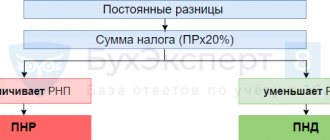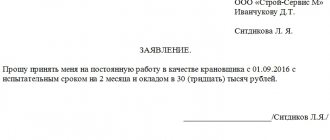We will continue to talk about:
- On what (advance, deposit or security payment) VAT is charged and under what conditions. In what cases is VAT not charged (VAT savings occur)?
- How does the tax inspectorate look at each type of payment and what to do about it?
- How are advances, deposits and payments used in tax accounting using the example of customer-supplier relations?
- How can you benefit from tax planning?
And “Teapot” and “Coffeepot” will continue to help us with this. And we started the adventure by explaining the terms and how an advance, deposit and security deposit are reflected in accounting here.
Be careful, there are a lot of subtleties and details!
Advance and VAT. Theory
In addition to Chapter 21 of the Tax Code, VAT on advances is regulated by the Decree of the Government of the Russian Federation dated December 26. 2011 No. 1137 and Order of the Federal Tax Service of Russia dated October 29, 2014 No. ММВ-7-3/ [email protected]
VAT is not charged on the advance received if:
- the seller is under a special tax regime and is not a VAT payer (Chapter 26.1–26.5 of the Tax Code of the Russian Federation)
- the seller is exempt from paying VAT (Articles 145 - 145.1 of the Tax Code of the Russian Federation)
- the prepayment was for a transaction not subject to VAT (Article 149 of the Tax Code of the Russian Federation)
- an advance was received for a transaction, the implementation of which will take place abroad (Article 147, Article 148 of the Tax Code of the Russian Federation)
- the advance payment was transferred for a transaction subject to a zero VAT rate (clause 1 of Article 164 of the Tax Code of the Russian Federation)
- prepayment is made for operations with a long production cycle - more than six months (clause 13 of article 167 of the Tax Code of the Russian Federation)
- the seller forgot to charge VAT on the advance payment, but regularly paid the tax upon sale. In such cases, you will have to defend yourself in court. The prognosis is favorable, but a fine will be charged (Resolution of the Central District Court of December 11, 2018 No. F10-5158/18 in case No. A54-9694/2017).
Didn't find yourself on this list? Then you will have to pay VAT on the advance payment. Consider these other nuances:
- The Ministry of Finance believes that advance VAT deductions cannot be postponed . They are declared only in the period when the basis for them arose (Letter dated 04/09/2015 No. 03-07-11/20290).
- The tax office is confident that VAT is charged on the advance payment received in any case , even if the periods of receipt of the advance payment and the sale coincide (Letter of the Federal Tax Service dated July 20, 2011 No. ED-4-3/11684). The courts believe that it is not necessary to “drive” advance VAT within one tax period, and it is enough just to reflect the implementation (Resolutions of the Administrative District of the North Caucasus District dated July 14, 2017 No. F08-4349/2017, dated July 7, 2016 No. F08-4155/2016 , FAS North-Western District dated 02/20/2014 No. Ф07-10666/2013, Resolution of the Presidium of the Supreme Arbitration Court of the Russian Federation dated 03/10/2009 No. 10022/08, dated 02/27/2006 No. 10927/05).
- If the sales amount is less than the advance payment, then only VAT on sales can be deducted.
- In order for the buyer to offset advance VAT, the prepayment condition must be in the contract, and the fact of transfer of money must be documented. You also need a correctly completed invoice for the advance payment (clause 9 of Article 172 of the Tax Code of the Russian Federation). VAT may not be restored if the advance payment was transferred from a terminated contract to another concluded with the same seller (Letter of the Ministry of Finance dated 02/08/2019 No. 03-07-11/7650).
What are the requirements for the warranty?
There are no requirements in 223-FZ when security for a contract under 223-FZ is made, in what way it is made and how to establish such a condition. Customers determine this procedure in the procurement regulations, notices and procurement documentation. There are also no restrictions on timing, size or methods: the customer has the right to establish a requirement for payment before the start of execution of the contract or at any time after its conclusion.
If the terms of the order stipulate that a guarantee is provided before concluding an agreement, and the supplier violated this condition, then the deposited funds will not be returned to him (Part 26, Article 3.2, Part 17, Article 3.4 223-FZ).
IMPORTANT!
Customers establish a requirement for a guarantee of contract performance, guided by the procurement regulations (Part 2 of Article 2 223-FZ).
Read more: “We are drawing up procurement regulations according to the rules of 2021”
The restrictions apply only to ensure an agreement under 223-FZ for self-employed entrepreneurs and self-employed people (clause 26 of the regulation approved by the RF PP No. 1352 of December 11, 2014):
- such participants are given the opportunity to independently choose the method of depositing collateral;
- the amount of the guarantee is equal to the amount of the advance or does not exceed 5% of the initial contract price for agreements that do not provide for an advance.
ConsultantPlus experts analyzed how procurement with restrictions for self-employed and self-employed people proceeds. Use these instructions for free.
To read, you will need access to the system: .
Here is an example of fulfilling the requirements for a contract under 223-FZ - the procedure for ensuring the fulfillment of obligations is prescribed:
Deposit and VAT. Theory
Tax authorities believe that the deposit performs a payment function. Therefore, its receipt should be considered an advance on the basis of subparagraph. 2 p. 1 art. 167 NK. When a deposit is received to secure an obligation under an agreement, the subject of which is a sale subject to VAT, VAT should be calculated on the deposit. The point at which the tax liability arises is controversial.
The Ministry of Finance (Letter dated 04/10/2017 No. 03-07-14/21013) and the Federal Tax Service (letters dated 02/02/2011 No. 03-07-11/25, dated 01/17/2008 No. 03-1-03/60) assure that, according to paragraph 1 of Art. 154 of the Tax Code, the deposit is included in the VAT tax base in the period when the money is received .
This position is reflected in judicial practice. Cognitive Ruling of the Supreme Court of the Russian Federation dated July 18, 2019 N 301-ES19-10310 in case N A82-20708/2017. The organization included a clause in the deposit agreement according to which the money was counted as payment for the purchase and sale agreement for the rabbit breeding complex project. The depositor transferred the money in two installments with the payment basis being “partial payment (then full) of the deposit under the purchase and sale agreement for the rabbit breeding complex No. 15-09 dated September 21, 2015, not subject to VAT.” There are more than enough grounds to recognize the sale and charge additional VAT. There is no need to do this.
The court also indicated: failure to subsequently conclude a purchase and sale agreement and failure to sell may be grounds for applying a tax deduction, but in the period when the basis for it appears.
Despite the “guiding clarifications of the authorities,” the security nature of the deposit, which is not subject to VAT at the time of receipt , is confirmed by judicial practice. Let's look at how to handle the deposit correctly using the example of the Resolution of the Arbitration Court of the Central District dated January 19, 2018 N F10-49/2017 in case N A09-11694/2015.
The preliminary agreement for the purchase and sale of goods included the payment period and the amount of the deposit with the wording “the buyer undertakes to transfer to the seller to ensure the execution of this preliminary agreement.” The fate of the deposit was determined after the expiration of the preliminary agreement. “If neither party took the initiative to conclude the main contract, the deposit will not be returned to the buyer.” It was agreed that if the buyer refuses the main contract, the deposit remains with the seller. We set a deadline for concluding the main contract. The recipient took into account the transferred funds as a deposit received under a preliminary agreement , not subject to VAT. The Federal Tax Service was unable to prove the legality of additional VAT charges.
How to return or change the security method
Returns and replacements are not regulated by 223-FZ regulations. These rules are established by the customer, based on the procurement regulations.
One of the return options: the security payment is returned to the contractor’s bank account within 15 working days after the fulfillment of contractual obligations.
The bank guarantee is not refundable. If the contract is performed properly, the customer does not collect obligations under it.
If the regulations and documentation do not establish return rules, you must be guided by the norms of the Civil Code. In paragraph 2 of Art. 314 of the Civil Code of the Russian Federation establishes the following procedure: the security payment is returned after fulfillment of obligations within 7 days from the date of presentation of demands for return.
Security deposit and VAT. Theory
The level of tax risks will be reduced if the basis, procedure for using and returning the security are specified in detail in the contract.
De facto, the security payment, which was called guaranteed, was used until 2015. This gave rise to ambiguity in law enforcement practice. 4 years have passed since the appearance of the legal structure in the Civil Code of the Russian Federation. The established position on VAT on a security deposit can be considered the opinion of the Ministry of Finance, which expresses:
- Letter of the Ministry of Finance of Russia dated December 28, 2018 N 03-07-11/95829
- Letter of the Ministry of Finance of Russia dated February 11, 2019 N 03-07-11/8176).
The occurrence of an obligation to charge VAT on a security deposit depends on the type of transaction. Receipt and return of security without subsequent offset as payment under the contract does not require VAT.
If the tax office can prove that the security is related to the sale, i.e. is counted towards payment for goods, works, services, then they will try to charge additional tax (Letter of the Ministry of Finance dated November 3, 2015 No. 03-03-06/2/63360). For example, a security deposit for the last month of rent often qualifies as an advance. Moreover, they can use sub. 2 p. 1 art. 162 of the Tax Code, which causes difficulties for both parties to the lease agreement with deducting accrued VAT.
How VAT is calculated in NMCC according to 44-FZ
Government customers form the maximum price of the tender and contract with the supplier based on the methods discussed in Part 1 of Art. 22 44-FZ. These include:
- monitoring of price offers;
- use of standards;
- calculation based on established tariffs;
- application of data from estimates;
- costly method.
FZ-44 explains which document states whether VAT is included or not when submitting to the 44-FZ site: the procedure for forming the NMCD and what it includes is indicated by the customer in the tender documentation. Read more: “How to justify the initial maximum contract price.”
Order of the Ministry of Economic Development No. 567 dated October 2, 2013 explains how to carry out the calculation. The document contains:
- regulations for the justification of the NMDC;
- formulas;
- examples of calculations;
- sample documents.
Article 22 of Federal Law No. 44 and Order No. 567 do not contain rules for drawing up NMCC with or without VAT, as well as instructions that when calculating the cost of GWS, the customer indicates separately the amount of tax, reduces or increases the final cost by the amount of the rate.
How can you benefit from tax planning?
Prepaid expense
With significant amounts of advance payments, the buyer can not only reduce the amount of VAT in the current period, but also reimburse the tax from the budget. This allows you to regulate the uniformity of tax payments. An advance deduction for several supplies can be received one-time and restored in parts in several tax periods.
Deposit
In case of emergency, a deposit can be used as a way to transfer funds free of charge from one company to another or as an interest-free loan. However, when using a deposit in this capacity, you should approach the paperwork very responsibly, since the tax office will try to prove the sham nature of the transaction.
Like an advance, a deposit is convenient to use to regulate the schedule of tax payments. This will allow, on the one hand, to evenly spend working capital (defer the payment of VAT), and on the other hand, to avoid suspicious situations if the amount of one-time VAT deductions is too large.
Security payment
The funds transferred as a security payment are in free circulation with the recipient. Essentially, this is an interest-free loan. A variety of conditions for the occurrence of obligations that require collateral make it possible to insure risks. For example, changes in exchange rates or excise tax rates for long-term cooperation.
The most convenient option to monitor tax planning is a special application that shows the burden for each type of tax and also gives recommendations for reducing them directly in your smartphone in real time.



